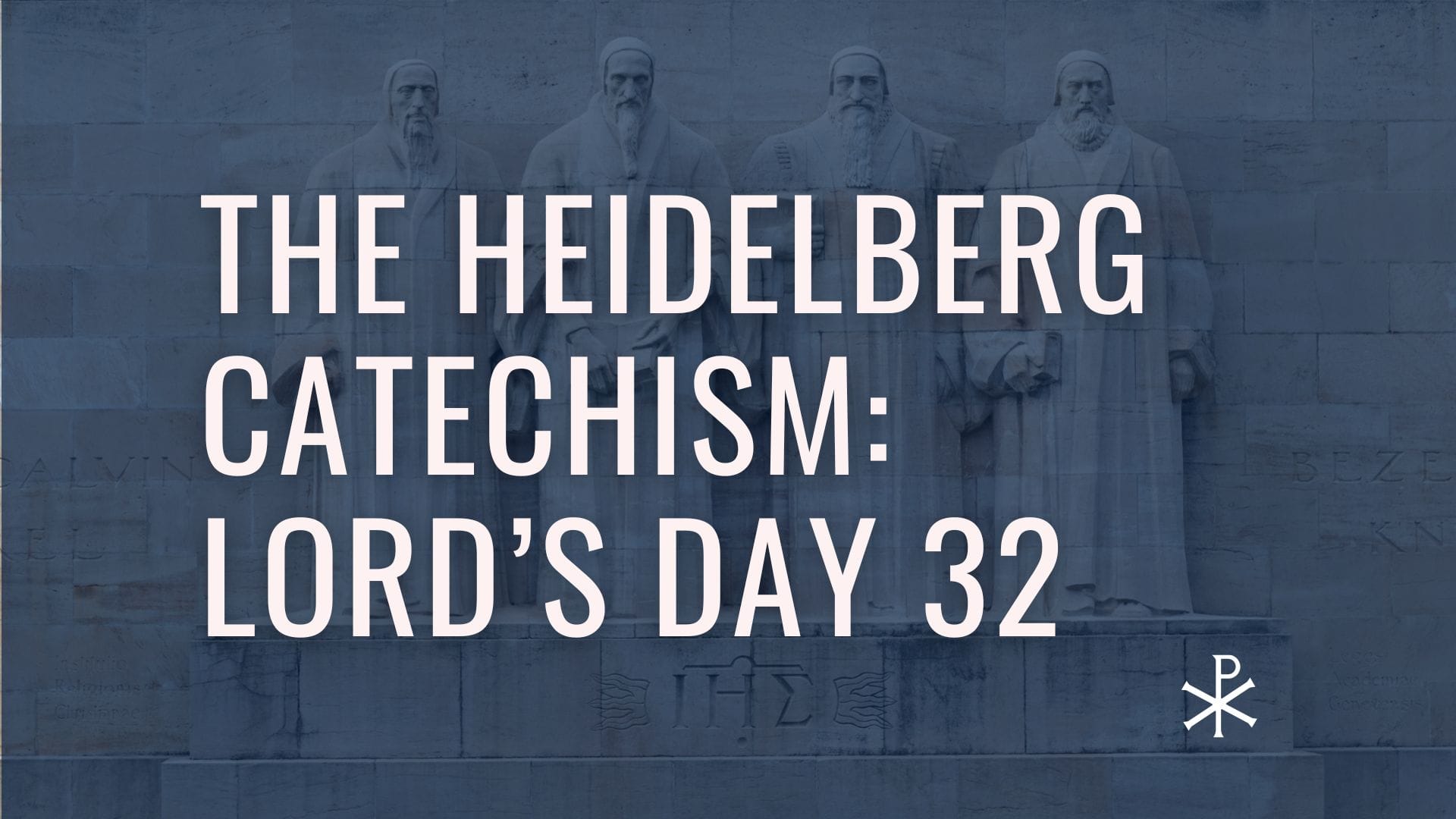Heidelberg Catechism: Lord’s Day 32
Lord’s Day 32 of the Heidelberg Catechism shows how salvation by grace leads to a life of gratitude, where good works flow as evidence of faith and a witness to the world.

Last week we lingered on the seriousness of the ordinances (or sacraments) and the way the Lord’s Supper keeps the gospel clear before our eyes. Now, as we turn to Lord’s Day 32, the Catechism makes a decisive shift. Up to this point, we’ve been tracing the story of salvation: our sin and misery, Christ’s deliverance, and the assurance of grace. But now comes the “therefore.”
If salvation is truly by grace alone, if Christ has done all that is necessary, then what place is there for good works? Are they irrelevant, optional, or unnecessary? The Catechism answers with a resounding “no.” Gratitude is not a footnote to the Christian life. It is the shape of it.
Question 86
Since we have been delivered from our misery by grace through Christ without any merit of our own, why then should we do good works?
Because Christ, having redeemed us by His blood, also renews us by His Spirit to be His image, so that with our whole life we may show ourselves thankful to God for His benefits, that He may be praised through us, and that we may be assured of our faith by its fruits, and by our godly living our neighbors also may be won to Christ.¹
¹ Romans 6:13; 12:1–2; 1 Peter 2:9–12; Matthew 5:16
Question 87
Can those be saved who do not turn to God from their ungrateful and unrepentant ways?
By no means. Scripture tells us that no unchaste person, idolater, adulterer, thief, no covetous person, no drunkard, slanderer, robber, or the like will inherit the kingdom of God.²
² 1 Corinthians 6:9–10; Ephesians 5:5–6; 1 John 3:14
From Gratitude, Not Guilt
This is the great gospel order: salvation first, then good works. We are not saved because of what we do, but unto a new life of obedience. When God’s grace takes hold, it transforms not only what we believe but how we live.
Good Works as Evidence and Invitation
The answer is beautifully practical. Good works show our gratitude to God, they bring Him praise, they assure us that our faith is genuine, and they become a witness to others. Each of those dimensions matters. A thankful heart overflows in action. A watching world sees something different in us. And our own souls are strengthened by obedience, because fruit reassures us that the tree is alive.
The Seriousness of Grace
But the Catechism doesn’t let us trivialize this. Question 87 is sobering. It reminds us that grace is not a license to live unchanged. Those who persist in unrepentant rebellion show that they have not yet received the grace they claim. The gospel saves us as we are, but it never leaves us as we are.
A Life That Shines
So Lord’s Day 32 opens the third and final section of the Catechism: gratitude. Everything that follows—commandments, prayer, daily living—flows from this fountain. To be saved by grace means to live a life of thanksgiving. To belong to Christ is to begin reflecting His image in daily obedience and love.
A Closing Prayer
Gracious God, You have rescued us not by our works but by Your mercy. And yet You have called us into a new life, one that bears fruit. Teach us to walk in thankfulness, to show Your goodness in the way we live, and to point others toward Your Son. Where sin lingers, give us repentance. Where doubts rise, give us assurance. May our lives shine with the joy of Your salvation. Amen.
Daily Bible Readings
New Testament in a Year
August 10 – Luke 13:1–21
August 11 – Luke 13:22–35
August 12 – Luke 14:1–24
August 13 – Luke 14:25–35
August 14 – Luke 15:1–10
August 15 – Luke 15:11–32
August 16 – Luke 16:1–18
The Bible in a Year
August 10 – Psalms 89–90; Luke 13:1–21
August 11 – Psalms 91–93; Luke 13:22–35
August 12 – Psalms 94–96; Luke 14:1–24
August 13 – Psalms 97–99; Luke 14:25–35
August 14 – Psalms 100–102; Luke 15:1–10
August 15 – Psalms 103–104; Luke 15:11–32
August 16 – Psalms 105–106; Luke 16:1–18
